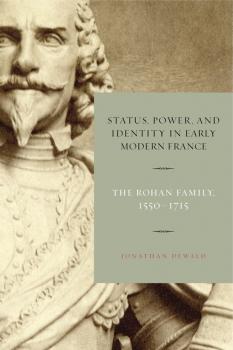ТОП просматриваемых книг сайта:
Jonathan Dewald
Список книг автора Jonathan DewaldАннотация
In Status, Power, and Identity in Early Modern France , Jonathan Dewald explores European aristocratic society by looking closely at one of its most prominent families. The Rohan were rich, powerful, and respected, but Dewald shows that there were also weaknesses in their apparently secure position near the top of French society. Family finances were unstable, and competing interests among family members generated conflicts and scandals; political ambitions led to other troubles, partly because aristocrats like the Rohan intensely valued individual achievement, even if it came at the expense of the family’s needs. Dewald argues that aristocratic power in the Old Regime reflected ongoing processes of negotiation and refashioning, in which both men and women played important roles. So did figures from outside the family—government officials, middle-class intellectuals and businesspeople, and many others. Dewald describes how the Old Regime’s ruling class maintained its power and the obstacles it encountered in doing so.
Аннотация
Today’s interest in social history and private life is often seen as a twentieth-century innovation. Most often Lucien Febvre and the Annales school in France are credited with making social history a widely accepted way for historians to approach the past. In Lost Worlds historian Jonathan Dewald shows that we need to look back further in time, into the nineteenth century, when numerous French intellectuals developed many of the key concepts that historians employ today. According to Dewald, we need to view Febvre and other Annales historians as participants in an ongoing cultural debate over the shape and meanings of French history, rather than as inventors of new topics of study. He closely examines the work of Charles-Augustin Sainte-Beuve, Hippolyte Taine, the antiquarian Alfred Franklin, Febvre himself, the twentieth-century historian Philippe Ariès, and several others. A final chapter compares specifically French approaches to social history with those of German historians between 1930 and 1970. Through such close readings Dewald looks beyond programmatic statements of historians’ intentions to reveal how history was actually practiced during these years. A bold work of intellectual history, Lost Worlds sheds much-needed light on how contemporary ideas about the historian’s task came into being. Understanding this larger context enables us to appreciate the ideological functions performed by historical writing through the twentieth century.


